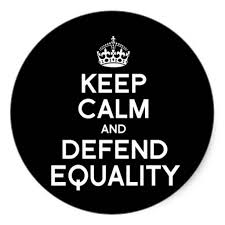It’s been a while since I posted and I figured I should probably get back on the writing wagon.
I recently spent seven weeks in Dubai and took a course called Women in Leadership. The course was an eye opening experience as it highlighted the serious lack of progress the U.S. has made for women’s rights. The countries represented in the class were Latvia, Sweden, Saudi Arabia, Ireland, the U.A.E., Russia, Syria, Canada, France, and the U.S. And by the end of the course I was seriously depressed at the state of women in the U.S.
Of all these countries, the U.S. is the only country that still does not have a federally mandated paid maternity leave law in place. While President Obama has finally acknowledged that this is a problem, we are still far from actually correcting the problem. So let’s look at how far behind we are:
In Sweden parents can take up to 480 days off per child, spread over the course of eight years. They also have cheap childcare as well as night care. And they have an incredibly low wage gap. Now, this is Sweden and Sweden is known for having the best in everything, I’m going to move on to other countries. Ireland has six months paid maternity leave and the government provides childcare for children between the ages of 4-6. France, we won’t get into because they, like Sweden, are just amazing. Syria gives three months of maternity leave and Russia gives women up to three years off. Finally, the U.A.E. grants women 40 days of maternity leave plus 100 extra days which can be claimed as sick leave; plus if the woman works for a government entity she can legally ask her employer to create a childcare facility at the office. Not bad for a country in a supposedly sexist region, no?
The U.S. is also lagging behind in terms of women in senior management positions. By region, North America is at the bottom, with only 21% of women in senior positions; compared to Latin America with 23%, Europe at 24% and ASEAN (Association of Southeast Asian Nations) is at at the top with 32% of women in senior management positions. And if we look at women in government, the statistics are still rather upsetting. In the U.A.E. 30% of the seats in Parliament are occupied by women, in the U.S. only 18% of Congress is made up of women.
Now, there is still a long way to go for many of the countries mentioned above in terms of women’s rights. But for the U.S. to state that it is the home of equality and opportunity is not only seriously hypocritical, it is a blatant lie. If the U.S. really believed in equality and in women’s rights, paid maternity leave, abortion, child care, and birth control would not be issues of debate, they would be seen as necessary; as part of an equal opportunity society which allows its citizens to decide what is best for them. Unfortunately the mentality that the government knows what is best for me has caused the U.S. to be stuck in the mud when it comes to women. And the lack of women in politics means we are not progressing.
It’s infuriating. And at this point I would have no issue with implementing quotas. Tokenism be damned. If that is how things are going to change, then lets do it. If that is the only way America is going to get over its issue with women in power, then lets get to it. At least that way women would have the influence they need to change things. To provide support systems for women who want both a career and a family or make life easier for those who want to be a stay at home mother. And maybe get the U.S. out of the mud and into a more progressive mindset.
~Shahida
Comments are always welcome!




